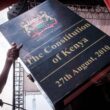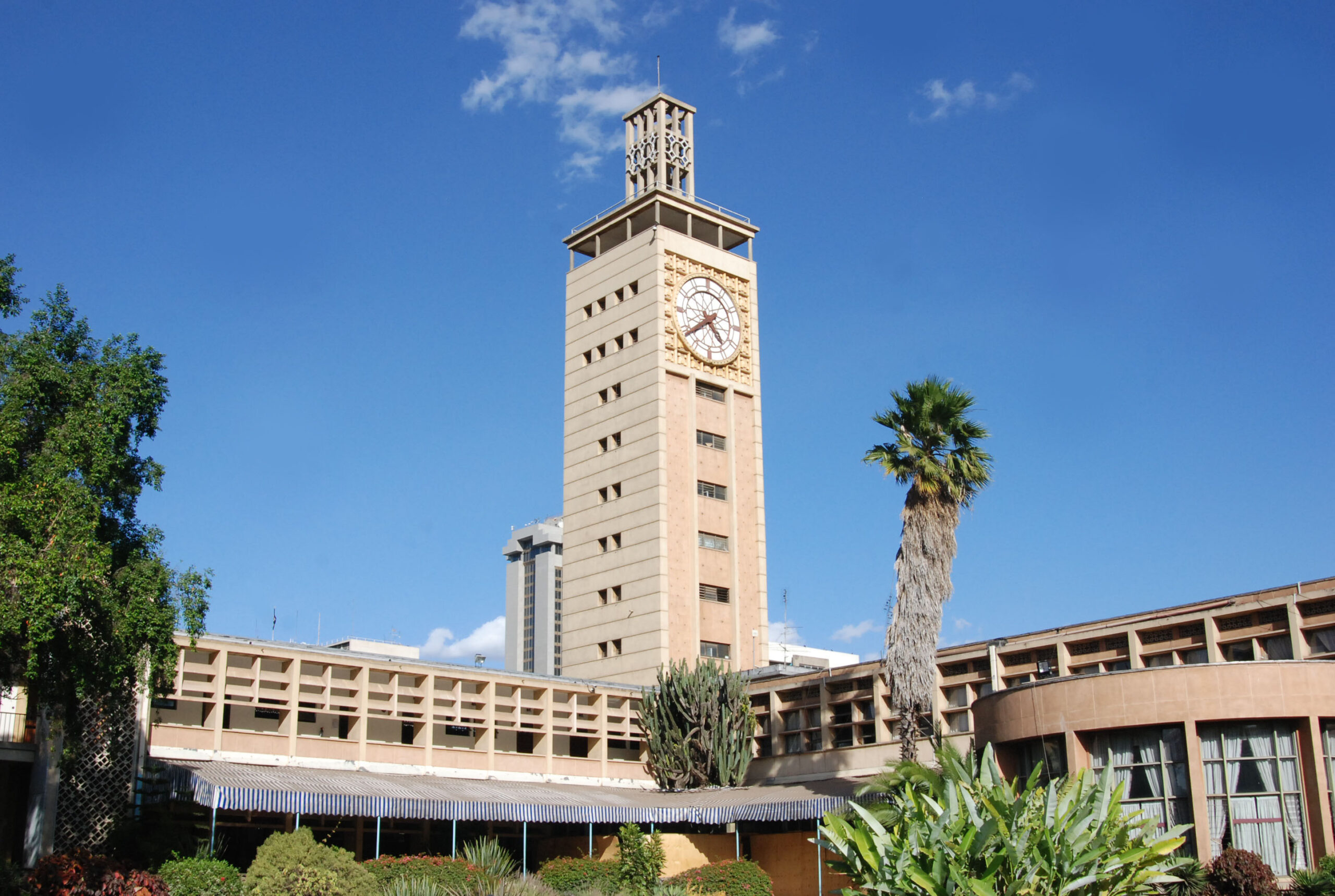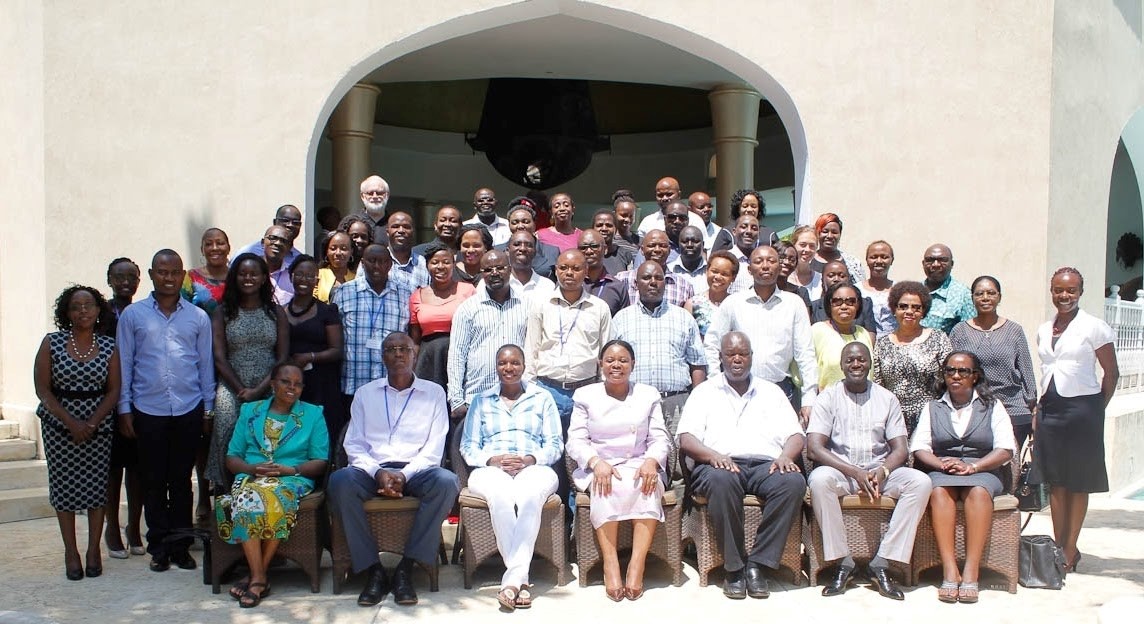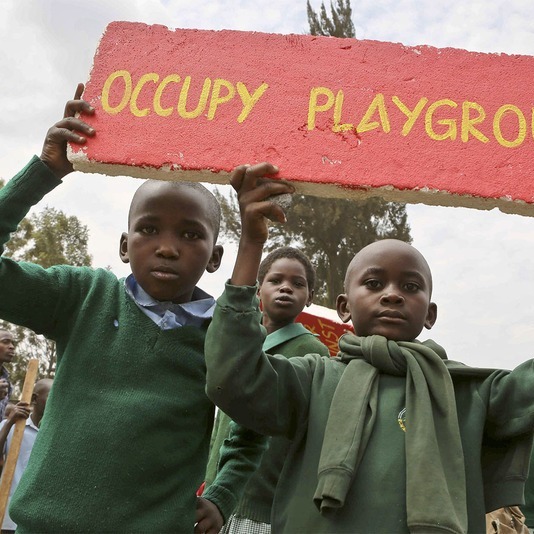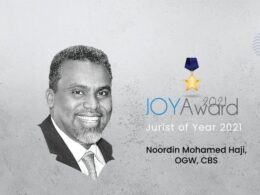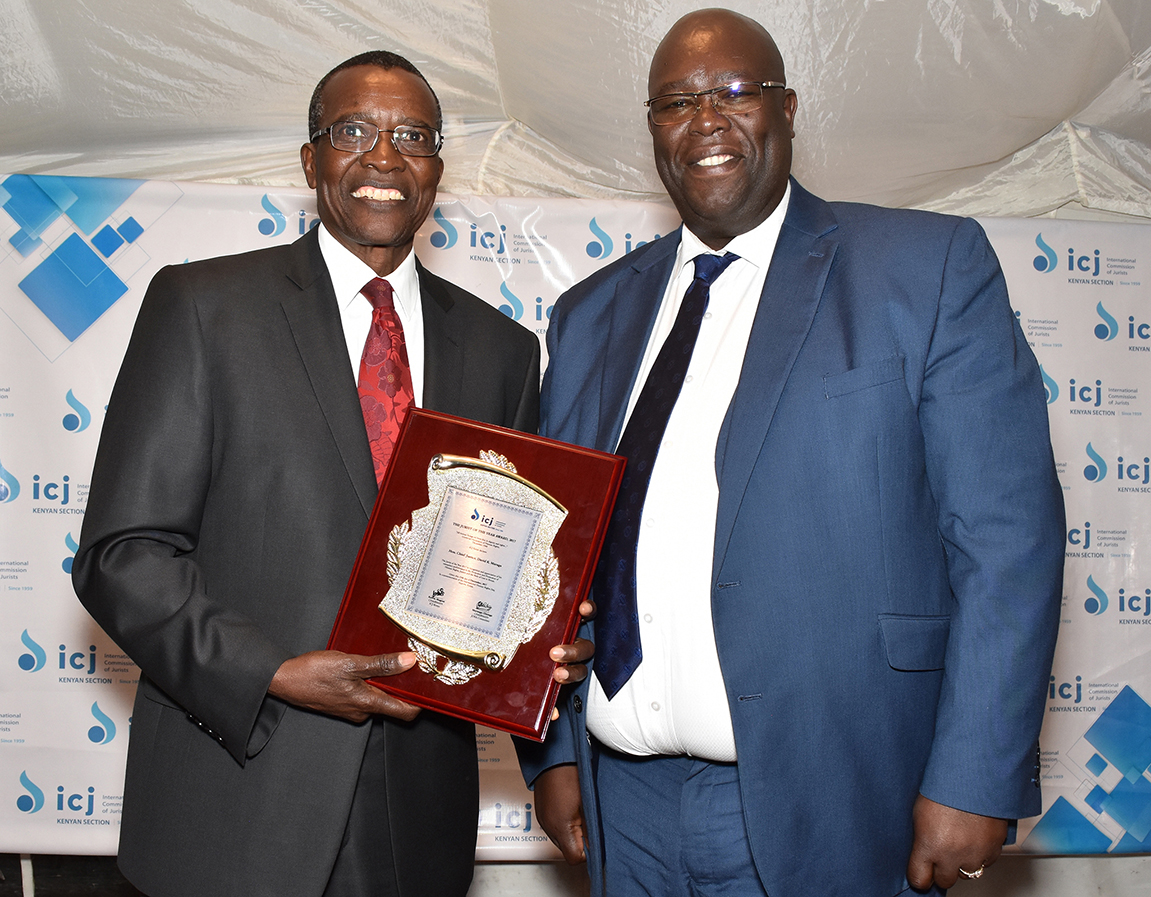Paul Kibugi Muite a Kenyan lawyer and politician is ICJ Kenya’s 2015 Jurist of the year.
He is being recognised for having distinguished himself as a courageous defender of the Bill of Rights and has contributed to the development of laws that gave birth to the new constitutional order in Kenya.
“His court victories are legion, his political contribution substantial but the cases he argues profile style, commitment and courage. It is this moral clarity that would trigger a swelling of ranks at ICJ Kenya chapter and signal a defining moment in the country’s transition to democratisation.
ICJ Kenya salutes his career and hopes to bring attention to the value of the courage, boldness and expertise that he abundantly epitomises.”
CITATION
Commemorations for this year’s Human Rights Day revolved around the theme, “Our Rights. Our Freedoms. Always.” The goal of the day is to promote and raise awareness of the two international covenants on human rights: International Covenant on Economic, Social and Cultural Rights and the International Covenant on Civil and Political Rights, which together with the Universal Declaration of Human Rights form the International Bill of Human Rights.
Our Jurist of the Year has many accomplishments on the back of an illustrious career as a senior lawyer and advocate of the High Court of Kenya. His legal career began in private practice, where he specialised in court and commercial practice, and spans more than 30 years.
An LL.B Degree holder from the University of London, our Jurist of the Year was an ‘internal refugee’ between 1988 and 1989, when he could not leave the country because the government had retained his passport.
His courage shone early when he emerged as a vociferous critic of the removal of the security of tenure of judges, the Attorney General, and the Auditor General. Courage would turn to action in joining others to demand the repeal of laws allowing detention without trial and the proscription of multi-party politics.
Days before his election to the chairmanship of the Law Society of Kenya, a Land Rover had rammed into his car, after which six men emerged to ask him if he wanted to report the matter to the police. His election to the Council of the LSK and later its chairmanship marked a turning point in how the legal profession would engage with the single-party state in Kenya. That leadership expanded the courts beyond being only sites for litigation but also for free speech and the morality of humankind. He and like-minded lawyers ingeniously shared critical information through court documents in cases they filed, some of which would otherwise be considered frivolous, as a way to enable the media and the public to report on the cases without the fear of censorship.
His freedoms of speech credentials are matchless. During the 2013 election, Our Jurist of the Year obtained orders directing media houses to include a wider participation in televised presidential debate. Only a year later, he would be challenging the arbitrary actions of the communications authority of Kenya in issuing broadcast frequencies.
Throughout his career, our Jurist of the Year has remained steadfast and fearless before the courts. In the 1990s, he stood up against ruthless judges who intimidated lawyers. In one instance, when asked by the court to file written submissions, he stated before the court that his instructions were to not to hand over written submissions, but to argue the case in open court. He has fought consistently on the side of the weak and the oppressed.
He also took up a landmark case together with Leigh Day and the KHRC on behalf of Mau Mau War Veterans seeking redress from the British government for atrocities suffered by Kenyans who were Mau Mau fighters during the colonial rule. The British government settled the case in 2013 marking a historic victory for Kenyan victims of colonial torture. In the contest between teachers and their employer, or the communication authority versus private broadcasters, he is not unlike David facing Goliath: apparently outnumbered by never afraid.
His court victories are legion, his political contribution substantial but the cases he argues profile style, commitment and courage. It is this moral clarity that would trigger a swelling of ranks at ICJ Kenya chapter and signal a defining moment in the country’s transition to democratisation.
His leadership of the legal profession recognised the great value in international linkages in the practice of law, evidenced in his service as a member of the International Bar Association’s Human Rights Committee and the LSK representative on the Council of Legal Education.
His name is mentioned alongside those of other brave Kenyans who endured police brutality, state torture, exile and arbitrary detention in their unrelenting quest for freedom of expression and political rights.
Never afraid to go against the grain, our Jurist of the Year entered active political competition on parties that defied the traditional ethnic bases that have defined the quest for leadership in Kenya and was instrumental in providing political leadership that promoted the rule of law and respect for human rights.
Not only has he theorised about and litigated on democracy and rights but has also put many of his ideas in practice as part of the top leadership of Kenya’s nascent political parties in the plural era.
Our Jurist of the Year has distinguished himself as a courageous defender of the Bill of Rights and has contributed to the development of laws that gave birth to the new constitutional order in Kenya. In 2007, when Anne Njogu and four other activists were arrested after protesting against plans by Members of Parliament to award themselves a $20m million bonus before the dissolution of the legislature, he successfully challenged their wrongful arrest and detention through a constitutional application.
Our Jurist of the Year has faced intimidation and death threats for speaking out publicly against extra-judicial executions in Kenya and calling for the prosecution of those involved. The executions were confirmed by a 2009 UN report which found the existence of “a systematic, widespread and clearly planned strategy to execute individuals carried out on a regular basis by the Kenyan Police”.
Our Jurist recognises the value of civil society in a democracy, and has recently challenged attempts to deregister organisations or tar them with the brush of terrorism. In 2015, and in recognition of his role in championing constitutionalism and the rule of law, he was appointed, alongside other eminent jurists, to the Law Society of Kenya’s special committee to promote constitutionalism and pursue the implementation of the Constitution.
As a one-time Rotarian, our Jurist of the Year has supported the efforts of the Rotary Foundation, a not-for-profit organization that promotes efforts to achieve world understanding and peace through international humanitarian, educational, and cultural exchange programmes.
In his own words, “When your country is attacked in a war situation, you don’t wait to be conscripted, you enlist to go to war. So the question is: what do you do. And the answer is, you do the little you can to change the direction of the ship of the state in order to avoid that. That’s all. You owe it to yourself, you owe it to your family, you owe it to your country.”
Our Jurist of the Year for 2015 is Mr Paul Kibugi Muite.
With this award, ICJ Kenya salutes his career and hopes to bring attention to the value of the courage, boldness and expertise that he abundantly epitomises.



